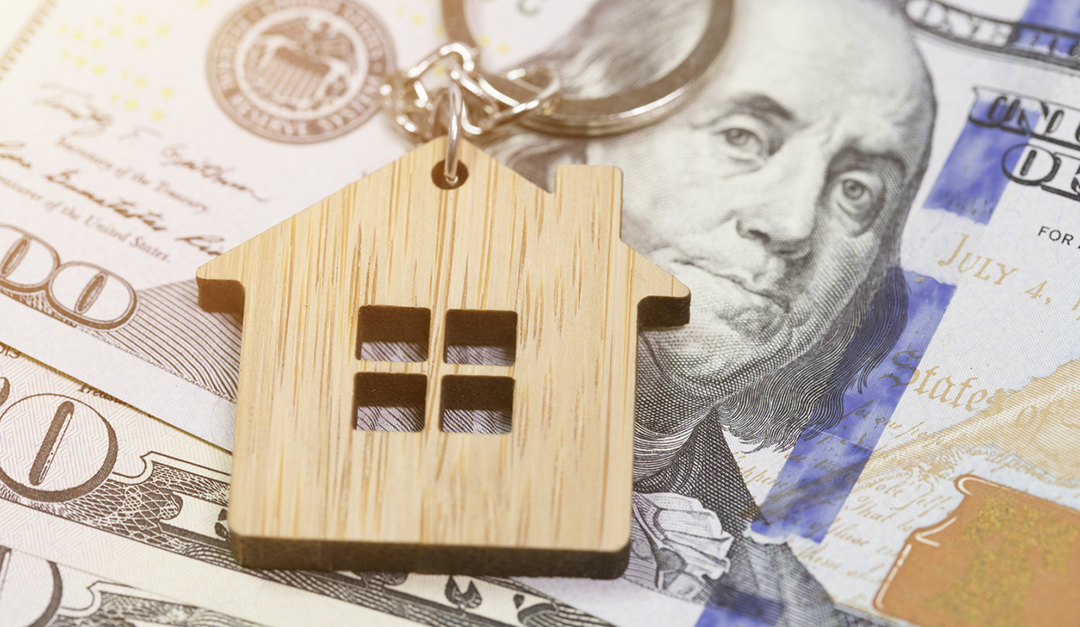Who Keeps The Earnest Money Deposit in a Home Purchase?
When buying a home, many folks have no idea what role earnest money plays in a real estate transaction. The earnest money payment forms part of almost all real estate contracts and agreements. It is a payment that you make to the seller of the property in good faith, proving you can back up your offer with cold hard cash. The idea is to show you are serious about buying the property. The money will be held in an escrow account.
If this is the first time you are purchasing a home, it may seem like you are handing over money and getting nothing in return. That, however, is not the case. Once the earnest payment has been received, the seller will take the property off the market, and the earnest payment will go towards the cost of the home. It forms the financial cement indicating you’re a sincere home buyer.
Does it always work out that way? No, it doesn’t, and since the earnest payment can be rather large, it is a good idea to understand what can go wrong before you hand over the cash.
It is also vital not to confuse a down payment with an earnest money deposit. A house down payment and earnest money are not the same things. The resource at Maximum Real Estate Exposure does an excellent job explaining what earnest money is, how it works, and how it differs from down payment funds.
How Much Should I Put Down?
It is only serious buyers who should put down an earnest money deposit. Let’s be honest; we are talking about a substantial amount of money. An earnest money deposit can be anywhere between 1 – 5% of the purchase price of the home.
So, if you are buying a home for $500,000, the earnest money will range from $5,000 to $25,000 and potentially more. That is a lot of money to put down to ask someone to take a property off the market.
Before you hand it over, you need to make sure that you have a contract covering the payment. That purchase and sale should include all of the obligations of each of the parties. From a buying standpoint, you will want to make sure there are essential contingencies, such as a home inspection and procuring financing.
When making an earnest payment, you’ll want to consult with your real estate agent on what is a traditional amount in the local market.
The Earnest Payment Makes the Purchase Contract Official
Handing over the earnest money effectively seals the deal. Once all of the financial issues have been settled, the property is now yours. That is unless something goes wrong. This is where it is crucial to have a buying agent on your side. He or she will look after you and make sure that everything stays on track.
Your buying agent will explain to you that the earnest money deposit is one of the four components that form part of the sales agreement. Without earnest money, the contract is likely not considered legal in most American states and foreign countries for that matter. One of the many things a buyer’s agent does is protect a buyer’s earnest money deposit by keeping up with contract performance time frames.
The Earnest Money Deposit – When Will It Come Through?
The earnest payment is best described as partial payment for the home you are about to buy. On average, the earnest money is handed over soon after an offer has been accepted. That is generally between 24 – 48 hours.
Some buyers who invest in prominent expensive properties may be asked how they obtained the money to make the deposit. This is to make sure there is no fraud, and that the money has come from legit sources.
Most of the time, buyers are asked to provide bank statements, deposit slips, and proof that the money has been in your account for at least 60 days. In some countries, it is easy to make offshore transactions, but that does not go for the United States. This can make it hard for foreign investors who often rely on financial resources from abroad or offshore.
Once the earnest money deposit is submitted, it is held by a third party, such as a real estate company or lawyer, until the completion of the home has gone through.
Specialist escrow companies have sprung up around the real estate industry, and many buyers and sellers turn to them.
What Happens If the Deal Falls Through?
Should the seller presume the earnest money is theirs the moment it has been submitted? Absolutely not. The seller will never see the money unless there is a default on the buyer’s part. Most of the time, a buyer’s lawyer or buying agent, will make sure there are clauses in the contract that protects the buyer.
There are many things that can still happen. If the home inspection brings up certain red flags, the buyer may just say thanks, but no thanks. The appraisal process might also affect the earnest money deposit. If there is an appraisal contingency that states the home must appraise for the purchase price and it doesn’t, the buyer will not have to proceed.
Financial problems such as the mortgage falling through will also mean the buyer can have his money back. Too many issues discovered in the home inspection are perhaps the most common reason for the earnest money being returned to the buyer. Yes, you can try to negotiate a new deal, but it doesn’t always work out.
The buyer being unable to sell his own home is another reason a sale could fall through. In real estate circles, this is known as a home sale contingency. The seller failing to stick to a moving out schedule is yet another problem that creeps up from time to time.
Does the Seller Ever Keep the Earnest Money?
Yes, the seller has the right to keep the money under certain circumstances. If the buyer decides to cancel the sale without a valid reason or doesn’t stick to an agreed timeline, the seller gets to keep the money. These are the most common ways a buyer will lose their earnest money.
Adhering to an agreed schedule is very important when it comes to buying and selling a home. The real estate business is all about making commitments and following them through. You may be one in the chain of many, and making sure that everything works out for all of you, is a bit like walking a tightrope in a circus. It is not easy, and you should not underestimate the skill of your local real estate agent.
If you are the buyer, it is imperative to have a professional with experience on your side. A buyer’s agent will help you to negotiate the earnest money deposit, make sure the entire home buying process runs smoothly, and ensure that you get the best value for money as far as the total purchase price of the property is concerned.
Final Thoughts on Earnest Money Deposits
So when answering the question “who keeps the earnest money when a home sale falls through?” it boils down to who violated the terms of the contract. If a buyer defaults on one of their commitments or time frames, they will lose their money. If, however, the buyer backs out of the transaction due to one of their contingencies, the seller will not be able to keep the earnest money.
Both buyers and sellers need to know the ins and outs of earnest money.
 Bill Gassett is a nationally recognized real estate leader who has been helping people buy and sell Metrowest Massachusetts real estate for the past 33 years. He has been one of the top RE/MAX REALTORS® in New England for the past decade. In 2018, he was the No. 1 RE/MAX real estate agent in Massachusetts.
Bill Gassett is a nationally recognized real estate leader who has been helping people buy and sell Metrowest Massachusetts real estate for the past 33 years. He has been one of the top RE/MAX REALTORS® in New England for the past decade. In 2018, he was the No. 1 RE/MAX real estate agent in Massachusetts.











